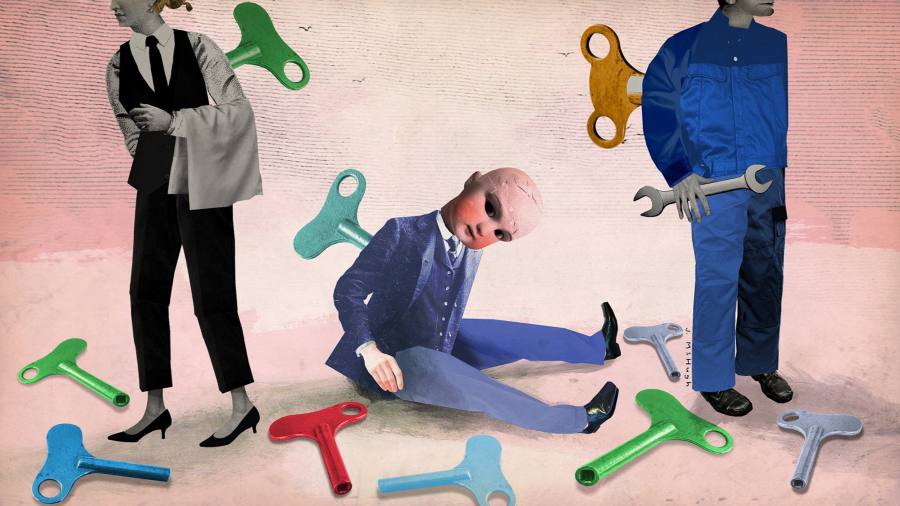
Where are all the workers? This is, increasingly, a puzzle. On the face of it, it’s good news that the unemployment rate is still falling — it’s just hit a 48-year low in Britain.
But this obscures something less positive: increasing numbers of people are dropping out of the labour market altogether.
The jobs “miracle” was routinely trumpeted by Boris Johnson’s government, and it’s certainly a good time to be a plumber, or a teenager who can pull a pint. There are still as many posts vacant as there are people looking for work, despite employers having scaled back a bit as the economy has got choppier. But the strains are taking their toll: baggage is piling up at airports, while builders and architects are closing their books to new contracts. Some executives I speak to are almost praying for a recession.
The latest figures from the Office for National Statistics show that, astonishingly, despite the cost of living crisis, average weekly hours worked are still not back at their pre-pandemic levels. In the three months to July, there was a small fall in overall employment.
It turns out that the new low in unemployment is not because more 16- to-65-year-olds are in a job. It’s because more people are not seeking work. The rate of economic inactivity has hit a six-year high of 21.7 per cent. That’s partly because some students have prolonged their education through the ravages of the pandemic. But it’s mainly because hundreds of thousands of people in their 50s and 60s now have a long-term illness, which, according to the ONS, is a record.
It is hard to escape the conclusion that the NHS backlog must now be having a direct and devastating impact on the labour force. Long Covid is also afflicting what may be, according to some estimates, as many as 1.5mn people in the UK, and between 10 and 20 per cent of those who have had Covid.
Yet the kind of urgency we saw from governments in combating Covid itself seems to be totally lacking when it comes to its after-effects. Policymakers seem to hope that long Covid will just go away. But anyone who has suffered from it, or knows someone with it, knows that this condition can be crippling — and that research is urgently needed.
The number of people needing hospitalisation in the pandemic was always going to cause havoc afterwards. But while we have seen this week that queuing is our national pastime, there is nothing charming about having to queue for basic healthcare.
People who put off seeking medical help during the Covid crisis are now sicker than they should have been. Those whose operations keep being postponed are losing hope. The number of people paying to go private is soaring; others are trapped in quiet desperation.
This should worry ministers — not only because it is an absolute outrage, but also because 50-somethings rarely ever return to work once they have retired. Their disappearance can only be adding to the inflationary pressures in the economy which are fuelled by the tight labour market.
In this unusual situation, the phrase “unemployment” feels rather unsatisfactory. It usually makes sense to measure the number of people who don’t have a job but would like one, and to exclude those of working age who aren’t looking. These tend to be students, homemakers and those caring for elderly relatives.
But if large numbers have been made incapable by failures in healthcare, that feels like a different matter. It makes the strict measure of unemployment a less accurate reflection of spare labour capacity.
The exodus of European nationals since Brexit hasn’t helped, especially in sectors which had previously been heavily reliant on EU labour and are finding it hard to adjust. The National Farmers Union has complained persuasively about fruit and vegetables rotting in the fields.
A detailed analysis last month, by the Migration Observatory at Oxford university, found that many low wage sectors — including social care, construction and hospitality — are struggling to adapt to the end of free movement from the EU. Even in sectors like construction, which are eligible for skilled work visas, there has been low take-up.
Britain is not the only country with low unemployment and unfilled vacancies. In terms of overall immigration, the entry of non-EU arrivals from 2019 to 2021 has largely offset the number of EU workers who have been lost. However these non-EU staff tend to be in higher skilled jobs, according to the Migration Observatory, so are not substituting for lost EU staff on a one to one basis.
One key Brexit objective was to end the undercutting of wages by migrant labour in low pay industries, and to raise productivity. But it may be that the crackdown on visas for workers in low-wage sectors has gone too far.
The Migration Observatory says that employers are reducing output. I have certainly met restaurateurs who say they are having to close several days a week for lack of staff, despite customer demand.
Until the pandemic struck, economic inactivity had been on a downward trend. Universal credit changed the benefits system to make work pay, and to get people off long-term sickness benefits wherever that was possible. It would be terrible if we were now congratulating ourselves on low unemployment, while actually keeping people unnecessarily out of work.